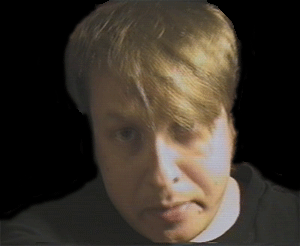I finally got read the late (and sorely missed) Arto Salminen's last book, Kalavale (2005). Here's a few words about the plot of the book.
Kyösti "Fisu-Hanski" Hannukkala is an old-school entertainer, familiar as a TV comedy veteran (clearly modelled after the late Spede Pasanen). He is also an elderly womaniser who has taken under his wings (and to his bed too) a foul-mouthed, uneducated beauty queen Oona, whose background is in the suburban slums. Oona is disgusted about having to do sexual favours to the considerably older Hanski (who finds out, though, that he can't "rise to the occasion" any more), but hangs out with him in hope of a slice of his fortune gathered together during his career of forty years. Secretly she keeps meeting Jami, a body builder and gym manager into fast cars and women, who peddles as a side business steroids and other illicit chemicals. This rogue gallery is complemented by Fisu-Hanski's right-hand man Kasperi, a slick offspring of an economy school who speaks flashy but ultimately hollow business jargon currently in vogue (the nearest equivalent in real life would probably be someone like Jari Sarasvuo, a Finnish celebrity lecturer, "motivation trainer" and the host of local version of The Apprentice who has has done his best to spread to Finland the gospel of American-type of "inner hero" business philosophies).
Fisu-Hanski is well aware that his days are numbered, both in the entertainment business constantly getting harder, faster and more vicious, and because of his ever-worsening heart condition. He knows it's time for his last stand, but he's not exactly delighted when Kasperi suggests him that they might create together a reality-TV show more ruthless and scandalous than seen ever before.
Called "Auschwitz", the planned TV show would get together twelve unknown people, all long unemployed, as prisoners and guards in a simulated studio prison camp. As we know, so called reality-TV shows, such as Big Brother, are always in fact psychodrama, innuendo and backstabbing-filled public contests about "the survival of the fittest" (read: society in micro-form), and in "Auschwitz" the task of the hapless contestants is to survive the harsh conditions of the "prison camp", their main task being to be able to take as heavy electric shocks as possible when sitting in a specially-built "electric chair"; alongside other continuing physical and mental humiliation, beatings and sexual abuse; all followed by cameras. Hosted by Oona, dressed as an Ilsa, She-Wolf of the SS type of cruel dominatrix mistress, "Auschwitz" will fulfill its expectations and more when all evening tabloids and gossip magazines keep eagerly following its day-to-day progress.
The necessary moral outrage is raised and controversy stirred, gaining all the needed notoriety and publicity for the show. At the same time the race is on about who will manage to get their names to Fisu-Hanski's will: his estranged daughter Anna or Kasperi or Oona, all despising each other.
Arto Salminen has, as in all his previous five books, his finger exactly on what's happening in Finnish society today. His prose combines hard-boiled accounts of hard, dreary life with his usual greedy, predatory characters depicted in a biting satire; with often-poetic sentences which he always honed for a long time. Did Arto Salminen see his own early demise with his usual ill-fated characters? Did he feel just too strongly about everything that is wrong with this society, since the worldview of his books seems totally devoid of hope? We can probably speculate endlessly. In the meantime, I sincerely wish his books remain in print for the new generations of future readers who want to capture something of the 1995-2005 Zeitgeist. (And hopefully one day also as translations for non-Finnish readers too.) If there is any future at all, judging by the way things are currently going. The most alarming thing about Salminen's books is that though seemingly intended as satire, with a strong sense of grotesque and black humour, they describe today's reality so accurately.
Arto Salminen @ pHinnWeb

No comments:
Post a Comment